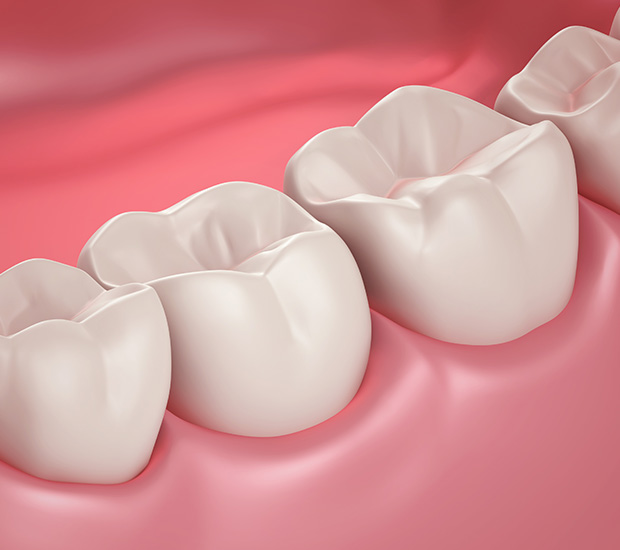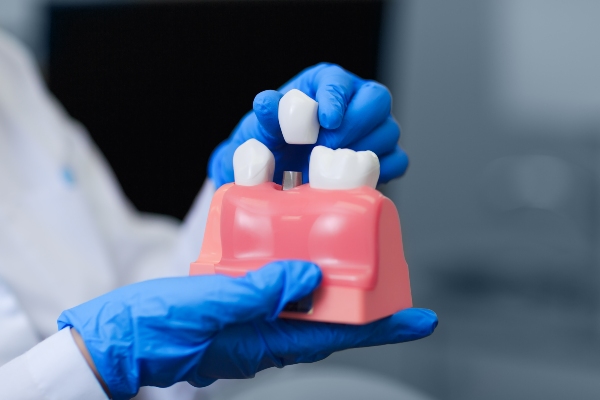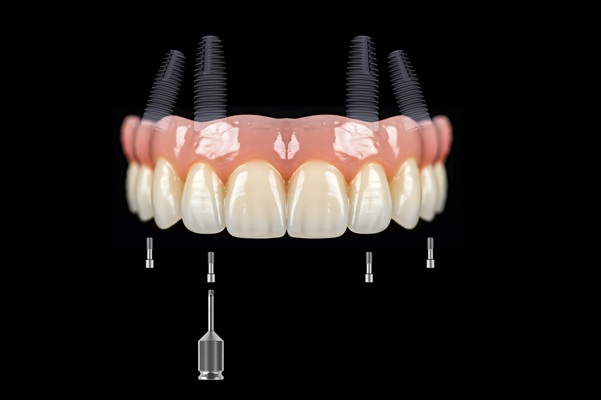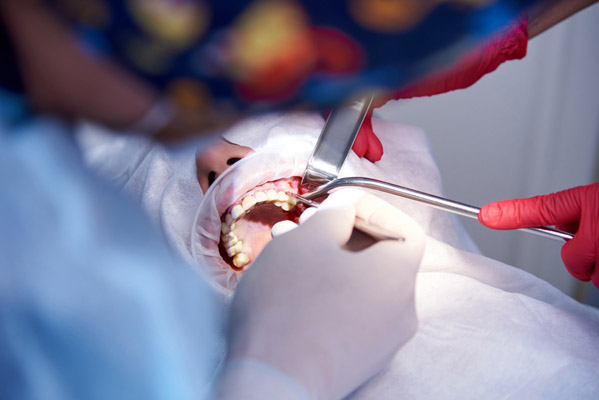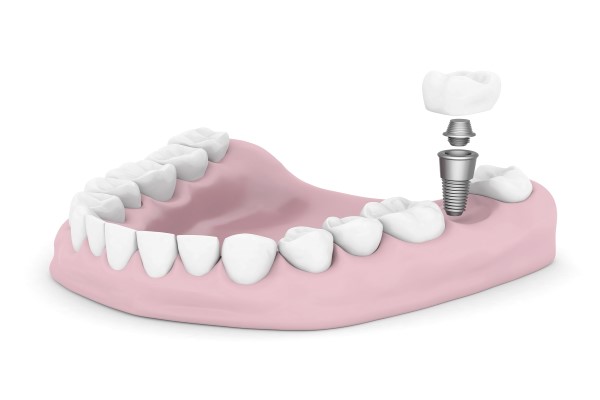Periodontal DiseaseSan Diego, CA
Periodontal disease is an infection of the gum tissue and the bones surrounding the teeth. It is more widely known as gum disease. If left untreated, periodontal disease can have serious consequences, including but not limited to tooth loss.
Periodontal disease treatment is available at Torrey Hills Periodontal Group in San Diego and the surrounding area. You cannot take care of your overall health without taking care of your periodontal health. We can help. Call us today at 858-925-1188 to schedule an appointment or to learn more about our services.
Understanding Periodontal Disease
Periodontal disease typically occurs once the gums and bone surrounding and supporting the teeth have become either infected or inflamed. There are two main types of periodontal disease: gingivitis, its less progressed form, and periodontitis, the more advanced form. In gingivitis, gums may become swollen, red, and bleeding. Periodontitis may have more severe consequences, such as loss of bone, gums pulling away from teeth, and tooth loss.
According to the Centers for Disease Control and Prevention (CDC), periodontal disease is most common in adults. Along with tooth decay, periodontal disease is the biggest threat to dental health. One recent CDC report has shown that over 47% of adults 30, and older and over 70% of adults 65 and older have some form of periodontal disease. For best results when dealing with periodontal disease, patients should seek treatment as soon as possible. Unfortunately, it can be difficult for patients to recognize the signs of periodontal disease, sometimes not even until their condition has already progressed — making routine dental visits all the more important.
Symptoms of Periodontal Disease
Ideally, gums should be firm, pale pink, and fit comfortably around the teeth. Any disruption from this baseline may be indicative of periodontal disease. Symptoms include, but are not limited to:
- Bleeding, receding, red, swollen, or tender gums
- Changes in bite or denture fit
- Deep pockets between teeth and gums
- Loose or shifting teeth
- Painful chewing
- Persistent bad breath or taste in the mouth
- Sensitive teeth
Some patients may have gum disease even without exhibiting any symptoms. Others may only be affected by periodontal disease in certain teeth. Thus, patients must seek routine dental care and consult with a periodontist at the first sign of gum disease.
Check out what others are saying about our Periodontal Disease services on Yelp: Periodontal Disease San Diego
Causes of Periodontal Disease
Periodontal disease typically begins with a buildup of excess plaque, a transparent and sticky film made up mostly of bacteria. An accumulation of enough plaque will inevitably harden under the gum line and turn into tartar, a bacteria-rich material that can only be removed by a professional dental cleaning. Plaque and tartar do more damage to the teeth the longer they are on the surface. Good oral hygiene habits, like regular brushing and flossing, can keep plaque under control.
While tartar can eventually lead to periodontitis, even plaque can cause gingivitis. Ongoing gum inflammation may also cause periodontitis. Ultimately, this will create pockets between the gums and teeth that collect bacteria, plaque, and tartar. Over time, these pockets will become even deeper and collect more bacteria. If left untreated, such infections may cause bone and tissue loss, potentially leading to tooth loss. This type of chronic inflammation may also strain the overall immune system.
Treating Periodontal Disease
The primary goal of treating periodontal disease is infection control. The extent of the disease will determine both the number and types of treatment. No matter what kind of treatment the patient undergoes, they must maintain daily care at home. Periodontists may also advise their patients to make certain lifestyle changes, such as quitting tobacco use, to reduce further aggravating the disease.
Though gingivitis can be controlled and treated with a professional cleaning and good oral hygiene practices, advanced forms of periodontitis may require more extensive treatment. This may involve deep cleanings, medications (either taken orally or deposited directly under the gums), and occasionally even certain surgical procedures.
Frequently Asked Questions
What are the risk factors for periodontal disease?
There are several potential risk factors for periodontal disease, including lifestyle choices. These involve tobacco use and excessive alcohol use. Others may have to do with other aspects of oral and overall health, such as diabetes, pregnancy, and crooked teeth. Poor oral hygiene, genetics, and certain medications may also contribute. We can help identify and develop a treatment plan for your personal risk profile.
What is the link between periodontal health and systemic health?
Though research between systemic diseases and periodontal diseases is still ongoing, many studies have indicated that periodontitis may be associated with diabetes and stroke. At the very least, chronic inflammation lowers the body’s defenses against diseases of any kind.
Besides brushing my teeth and flossing, what can I do to take care of my oral health?
Use only fluoridated toothpaste and mouthwash approved by the American Dental Association (ADA). Eat a balanced diet, one that avoids excess sugar and gravitates towards crunchy fruits and vegetables. Brush your teeth with the proper technique. Hold the toothbrush at a slight angle and gently brush in short, circular back-and-forth motions.
How can a periodontist remove plaque?
Plaque is typically removed during a scaling and root planing procedure, where the periodontist will clean below the gumline. This smoothes out any rough areas on the roots of the affected teeth. It may take one or two visits to remove the plaque entirely, depending on how much has accumulated.
How is periodontal disease diagnosed?
To determine a diagnosis, a periodontist will typically examine the jawbone to detect if any bone surrounding the teeth has broken down. They will also look for teeth movement and sensitivity, along with proper teeth alignment. Additionally, the periodontist will look for bleeding or swelling gums, check the gums’ firmness, and examine the depth of the pockets.
Call Us Today
The first step to taking care of your overall health begins with taking care of your periodontal health. We at Torrey Hills Periodontal Group may be able to help. Call us today at 858-925-1188 to schedule an appointment or to learn more about our services.
Torrey Hills Periodontal Group is located at 4765 Carmel Mountain Road Ste 204 San Diego, CA 92130.
